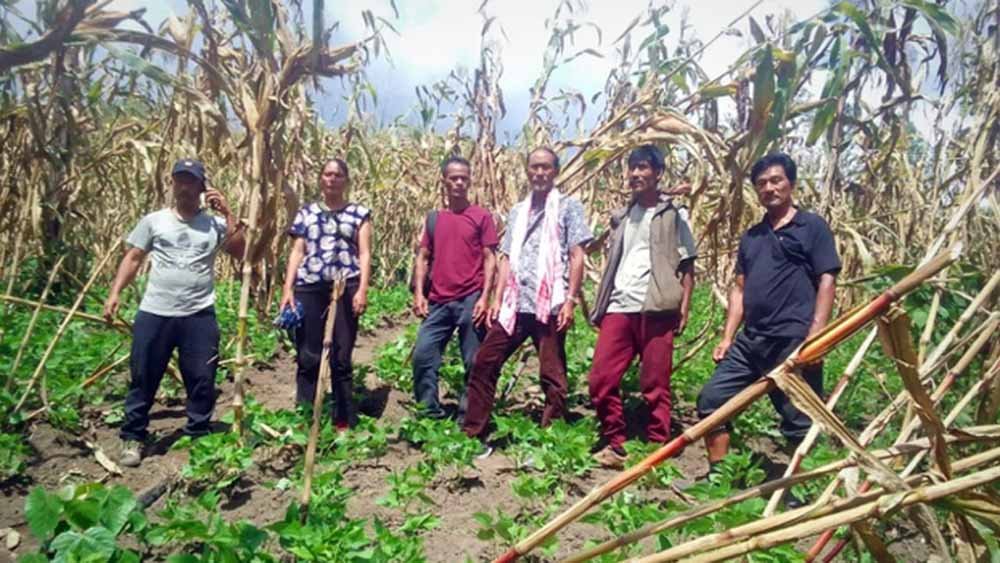In a unique exchange of indigenous farming knowledge, two experienced farmers from Sotokur village on Saturday visited Sangsangyu village to train local farmers on improved kholar (rajma) cultivation practices. The programme was facilitated by Facilitators of Community Conserved Area (FCCA) under Nagaland Empowerment of People through Economic Development (NEPED) and organised under the ongoing Forest and Biodiversity Management Project (FBMP) funded by KfW (German Development Bank).
Kholar, a traditional high-value legume crop widely grown in Nagaland, holds great potential for enhancing rural incomes and accessing global markets. However, variations in farming practices have led to different levels of productivity between villages. For instance, while Sangsangyu farmers typically harvest around eight tins of kholar by planting one tin, Sotokur farmers manage to harvest more than 15 tins from the same quantity.
During the exchange, Sotokur farmers demonstrated various cultivation techniques, including proper spacing between seeds, planting methods in stony soils with minimal manure, and maintaining seed depth to withstand frost during colder months (October–December).
Similarly, farmers from Chingmei and New Chingmei villages also visited Sotokur’s kholar fields, where they witnessed the cultivation methods first-hand and expressed their commitment to adopt the improved techniques in the next cropping season.
According to organisers, such peer-to-peer exchanges under the FBMP-KfW project have shown the potential of community learning, where successful practices from one village can be replicated in others, thereby multiplying benefits across Nagaland. Experts believe that with improved practices, Nagaland’s farmers can significantly boost kholar production and tap into high-value domestic and international markets.
Sotokur farmers train villages on high-yield kholar practices
DIMAPUR

